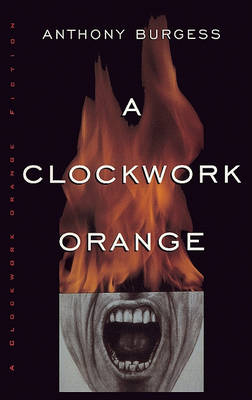Reviewed by clementine on
I got pretty frustrated and angry partway through when Alex and his droogs (show spoiler)[rape the woman in the cottage] - I just didn't understand why I was reading a book narrated by such a sick, disgusting person. However, I persevered, and ended up sympathizing with Alex to a certain degree. I love books like this because I love having my ideas of good and evil (and other binary oppositions) challenged. I loved the exploration of morality and free will. Of course I didn't actually like Alex by the end of it, but my feelings for him were much more complicated than they were initially. I still absolutely disagree with him that he has paid for his violent crimes, because despite his concessions in the final chapter he doesn't seem to feel any true remorse for his actions - rather, it seems that he's outgrown his rebellious teenage days. He's definitely not a likeable narrator, but he's more complicated than I thought he would be and his experience with the Ludovico Technique made me feel some sort of strange sympathy for him.
As I said, I was at first really nervous about Nadsat, since there are certain passages that are so saturated with it, but I ended up loving the various forms of language that were explored in A Clockwork Orange. Nadsat, the heavily Russian-based slang language used by Alex and the other teenagers, was really neat, and it was presented in such a way that it was really easy to pick up on quickly. It was cleverly constructed and cleverly integrated. I also enjoyed Alex's almost Shakespearean style of speaking - the language of this society was absolutely fascinating.
I will definitely say that while I didn't have a huge problem with the final chapter, it does make more sense to me to leave it out. The whole book would have had a really neat 1984-like arc, except instead of going from submissive/oppressed/obedient to rebel back to submissive/oppressed/obedient it would have gone from rebel to submissive/oppressed/obedient back to rebel. I noticed that parallel structure as I was reading and I was a little disappointed when the ending ruined that. The ending also isn't totally believable, but I didn't find it awful by any means.
I would be interested in finding out more about the society that we get glimpses of; the whole thing is so local, so much inside of Alex's head, that it's hard to get a good picture - or any picture, really - of the society. We know very few things about it, and while I don't think the book lacks because of that, I love dystopian and I would be very interested to know more about it.
This is another book that I need more time to re-read and digest. There's a lot going on and there are so many complicated issues and themes brought up. I thoroughly enjoyed it the first time around, but I do feel like I could get more out of it with a few subsequent readings.
Reading updates
- Started reading
- 26 June, 2012: Finished reading
- 26 June, 2012: Reviewed
